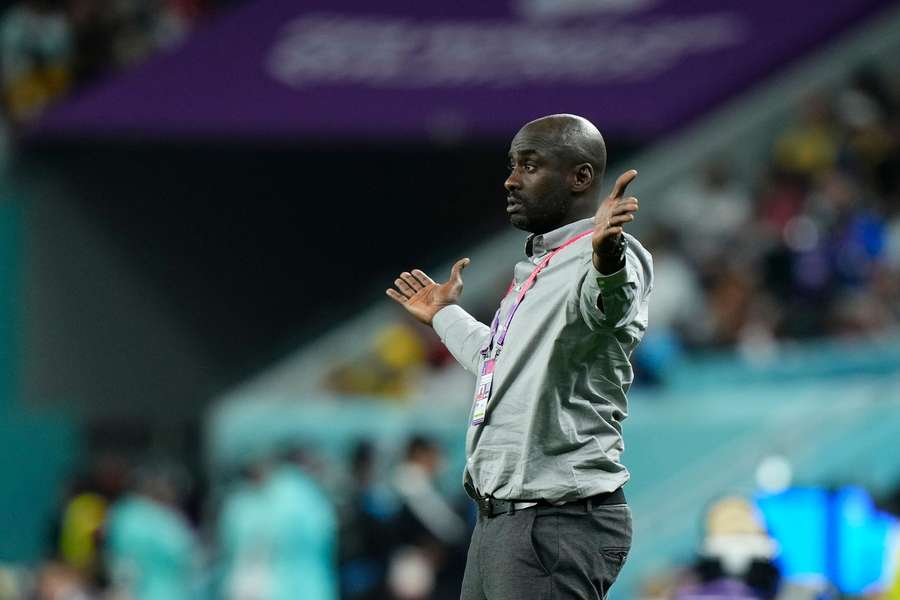Captaincy Chaos: The unstable leadership of Black Stars breeds uncertainty

Jordan Ayew is the latest player entrusted with the armband as the team gears up for the final set of Africa Cup of Nations (AFCON) qualifiers.
This change comes on the heels of Thomas Partey's unexpected removal from the squad, with Addo citing “confidentiality” when pressed for details.
Jordan’s appointment marks a significant shift, as he takes over from Mohammed Kudus, who donned the captain's armband during the last international window in a double-header against Sudan.
The frequent changes in leadership raise concerns about the direction and cohesion of a team that desperately needs stability.
A captaincy merry-go-round
Addo had a unique opportunity upon his return to establish a new era for the Black Stars, particularly after Andre Ayew’s five-year tenure as captain.
In his inaugural press conference as head coach, he hinted at wanting to build a youthful core for the future.
However, it would have been prudent to appoint a designated captain who embodies his vision and values—someone who could effectively drive this new project forward.
Addo failed to address that and as a result, the leadership structure has become increasingly murky since his permanent appointment. The previous hierarchy established in 2019 - featuring Andre Ayew as captain, Thomas Partey as first vice-captain, and Richard Ofori as second vice-captain - has seemingly crumbled. Neither Ayew nor Ofori has received a call-up since Addo took charge, leaving fans questioning the team’s leadership dynamics.
The situation became even more perplexing during earlier international fixtures in March. When Partey was unavailable for friendlies against Nigeria and Uganda, Jordan stepped in as captain. However, upon Partey’s return for the 2025 World Cup qualifiers against Mali and Central African Republic, he resumed his role as captain.
When asked about this shifting captaincy during a recent press conference, Addo’s response was vague at best.
“First of all, I hope that Thomas won’t get injured,” he stated before listing potential stand-ins like Alexander Djiku, Kudus and Mohammed Salisu.
Unfortunately for Addo, Partey fell ill and was excluded from the squad for the October international break. In an unexpected twist, Kudus was appointed captain—a decision that surprised many.
Addo later clarified that while Kudus was his second captain in Partey’s absence, he wanted to foster an environment where younger players could challenge their senior counterparts on the pitch when needed.
Just weeks after failing to beat Sudan in two games, however, Addo reverted back to Jordan as captain, admitting that appointing Kudus may have come too soon for the young midfielder.
“I talked to Kudus for him to understand that for me he just needs to learn and grow, I want him to remain second captain alongside Djiku but Jordan will take over from now,” he said at a press conference.
From an outsider’s perspective, it appears there has been little deliberation in the selection process for captains - a crucial role that should be treated with utmost care and consideration. The decision to choose captain can be described as a merry-go-round as best with how things stand at the moment.
The captaincy is not merely a title; it is pivotal for fostering unity and motivation among teammates. Frequent changes can lead to confusion and inconsistency on the field, undermining both performance and team cohesion.
Addo has consistently emphasised his commitment to building a new team dynamic: “We need consistency. If we want to have success we need consistency.”
Yet how can there be consistency when players are forced to adapt to a different voice leading them every international break?
Historically, Ghana's captaincy has been clear-cut; Asamoah Gyan held the position for seven years, followed by Andre Ayew for five years - periods marked by certainty regarding leadership roles. In contrast, Addo’s recent comments suggest that these changes are merely “temporary", further casting doubt on the team’s direction.
As Ghana prepares for its next match after the November international break - against Chad in World Cup qualifiers - the uncertainty surrounding who will wear the armband remains a pressing concern.
In those five months after the games against Angola and Niger this month, many questions will linger about leadership stability and whether Addo can solidify his vision for the Black Stars amidst this ongoing captaincy chaos.
What next for the Black Stars?
Ghana’s qualification hopes for the 2025 AFCON hangs in the balance. With two points from the first four games, the Black Stars will need to first win their two games against Angola and Niger and then hope Sudan lose both games.
Ghana will travel to face Angola on November 15 before hosting Niger at the Accra Sports Stadium three days later. Failure to qualify for the AFCON will compound Ghana’s woes after back-to-back group stage exits at the continental showpiece.
Full Ghana squad
Goalkeepers: Ati Zigi Lawrence, Manaf Nurudeen, Jojo Wollacott
Defenders: Alidu Seidu, Tariq Lamptey, Jonas Adjetey, Nathaniel Adjei, Alexander Djiku, Jerome Opoku. Gideon Mensah, Isaac Afful, Razak Simpson
Midfielders: Elisha Owusu, Abu Francis, Ibrahim Sulemana, Baidoo Michael, Mohammed Kudus, Emmanuel Antwi
Attackers: Ibrahim Osman, Ernest Nuamah, Antoine Semenyo, Jordan Ayew, Inaki Williams, Fatawu Issahaku, Joseph Paintsil




